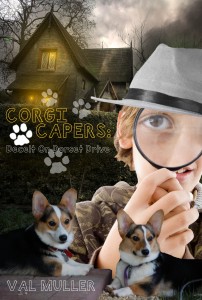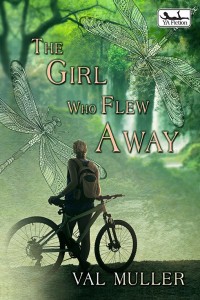 A while back, a group of my creative writing students reached out to me that they had found a local author at a book store. One thing led to another, and soon we had her scheduled for a visit during one of our meetings. Of course I purchased her book to check it out prior to her visit. She ended up coming on the one day of the year I was too sick to show up, so we still haven’t gotten to meet.
A while back, a group of my creative writing students reached out to me that they had found a local author at a book store. One thing led to another, and soon we had her scheduled for a visit during one of our meetings. Of course I purchased her book to check it out prior to her visit. She ended up coming on the one day of the year I was too sick to show up, so we still haven’t gotten to meet.
But I did get to read her book.
The book falls into the “new adult” category, following a college student (Lily) as she returns home one summer to restart her family’s bakery following her dad’s heart attack. She just wants to hire a bakery manager and get back to UVA, but of course some things come up.
First of all, Lily is obsessed with solving mysteries, thinking herself somewhat of a Stephanie Plum. She goes onto this website, The Doe Network (doenetwork.org) that lists bodies found that have not been identified. The case Lily finds in the novel is fictional, but the site (as I learned) does exist.
Lily has other quirks, too. She is staying with an older woman named Miss Delphine (my favorite character), who has Lily feed chickens in exchange for rent (Lily would prefer not to stay with family or find any other type of permanent housing situation). She is terrified of the chickens and assigns them clever nicknames and traits. Lily’s internal monologue is packed with quirky, choice comparisons that kept me entertained and kept Lily flawed and likeable.
Then there is the obsession that takes over: Jack. Jack is (has been) her best friend, but now they both want something more. In her way of over-thinking things, she is panicked and obsessing over this choice, worried that an attempt at romance will ruin their friendship. Meanwhile, Jack seems to have it all put together. He is protective (sometimes overly so), caring, and passionate. He was my least favorite character only because he was too solid of a rock for her (despite him causing her panic: he was super patient through all her freak-outs and never seemed at risk of giving up on her. I would have liked to see him lose patience just a bit).
I was drawn into the novel and read it quickly. I had only a few minutes the first time I sat down to read, and I was shocked to find I had read 80 pages without noticing. That’s what I like when I read: getting absorbed in the novel.
My only disappointment was that the focus on the bakery, her primary reason for returning, took a back seat to obviously more pressing matters. But then I learned that this is the first book of several, so it makes sense. I think also since my first high school job was in a bakery, I was looking forward to some nostalgia, but the bakery never played a huge role in the novel.
I look forward to reading the next installment.
 Want to write children’s lit? Middle grade or YA? Join my online class, “Storytelling for Kids” with Pennwriters. It starts June 3 and includes a free two-chapter critique. Find out more: https://valmuller.com/2019/05/21/storytelling-for-kids/
Want to write children’s lit? Middle grade or YA? Join my online class, “Storytelling for Kids” with Pennwriters. It starts June 3 and includes a free two-chapter critique. Find out more: https://valmuller.com/2019/05/21/storytelling-for-kids/

